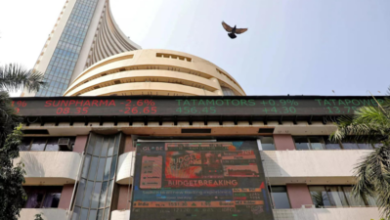Fears of instability in food prices have kept the key interest rate at 6.5%
At its most recent meeting before to the general election, the monetary policy committee (MPC) of the Reserve Bank of India decided to leave interest rates unchanged. The statement upset the sector, but RBI Governor Shaktikanta Das said that worries about the instability of food price inflation were the reason for the decision to keep the repo rate at 6.5% for a seventh straight time.

The Reserve Bank of India has forecasted a real GDP growth rate of 7% for 2024–2025 and retail inflation of 4.5 percent over that time. During this fiscal year, the quarterly growth estimates are 7.1% in Q1, 6.9% in Q2, 7% in Q3, and 7% in Q4.
By a vote of five to one, the MPC decided to maintain the rates as they were. Last February of last year, the RBI last adjusted the rates. The current rate of inflation is around 5%, which is within the RBI’s top tolerance range. The RBI asserts that it is dedicated to lowering the inflation rate to 4%, which is seen to be the optimal level for steady economic development. The remarkable growth rate of 8.6% in the October–December quarter of 2023–24 and the forecasted growth rate of 8% in the last quarter of the current fiscal year are further factors contributing to the RBI’s confidence.
According to Das, robust tax revenues and a strict control on the budget deficit have bolstered the macroeconomic fundamentals. “It is our prime focus to build a strong umbrella, a strong buffer in the form of a substantial quantum of forex reserves, which will help us when the cycle turns or when it rains heavily,” the RBI chief stated in reference to the foreign exchange reserves reaching a two-year high of $645.58 billion for the week ended March 29.
Das announced the launch of a mobile app to access the RBI’s retail direct program for participation in the Government Securities (G-Secs) market, as well as a plan for trading sovereign green bonds at the International Financial Services Centre (IFSC).
The probability of a rapid rate drop is decreasing, according to analyst Amit Goel, maybe as a result of an approaching heat wave. “In August, we anticipate the RBI to start a cycle of relaxing. However, the longer rates are kept high, the greater the chance that the economy will not reach its full potential for faster growth.
According to Saurav Ghosh, another expert, the sector as a whole would benefit from the unaltered repo rate as it would provide stability and predictability. “However, it is imperative to keep an eye on the uncertainties surrounding geopolitical risk, food price volatility, and crude as these continue to present obstacles and have the potential to impede the progress towards disinflation,” said analyst Nish Bhatt.







